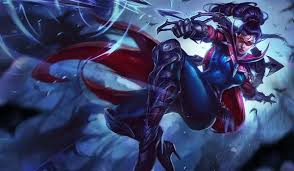Before Allen Iverson became the 2001 NBA MVP and cultural icon who revolutionized basketball, he wanted to be an NFL star. The Philadelphia 76ers legend recently revealed on the “New Heights” podcast with Jason and Travis Kelce that his football dreams were shattered by a single profane warning from Hall of Fame coach John Thompson—and it took years to get over it. What exactly did Thompson say that changed the course of basketball history?
Table of Contents
Allen Iverson’s Moment That Changed Everything
During his Wednesday appearance on the Kelce brothers’ hit podcast, Allen Iverson opened up about the day his football aspirations died. The conversation happened when “The Answer” approached St. Anthony High School’s legendary coach to ask about trying out for the football team.

Iverson’s Exact Recollection:
“It took a lot for me to get over not being able to play football, but it all ended one day when I talked to St. Anthony’s ex-coach Thompson and asked him if I could play football, could I try out for the team.”
Thompson’s Profane Response:
“He basically said, ‘don’t ever come to me with nothing like that, no nonsense like that, never again.'”
The Kelce brothers burst into laughter hearing the story, but for young Iverson, it was devastating. He admitted: “I never thought about going in football again after what he said.”
Source: NBA Official Allen Iverson Bio
For more NBA legends’ untold stories, visit our basketball history hub.
Why John Thompson’s Harsh Words Were Actually Protective
Hall of Fame coach John Thompson wasn’t being cruel—he was protecting a once-in-a-generation basketball talent from himself. Thompson, who coached Georgetown University to the 1984 NCAA championship and mentored Patrick Ewing, knew greatness when he saw it.
Thompson’s Coaching Philosophy:
- Known for tough love and no-nonsense approach
- Protected his players fiercely, both on and off court
- Prioritized long-term success over short-term desires
- Recognized Iverson’s basketball ceiling far exceeded football potential
The Risk Thompson Saw: Football’s violent nature meant one wrong hit could have ended Iverson’s athletic career entirely. At 6’0″ and 165 pounds during high school, Iverson would have been undersized for most football positions—but his basketball frame was perfect for NBA dominance.

Iverson’s Two-Sport Excellence: A Rare Talent
What makes this story remarkable is that Iverson wasn’t just dreaming—he was genuinely elite at both sports.
| Sport | Position | High School Achievement | College Path | Professional Potential |
|---|---|---|---|---|
| Football | Quarterback/Running Back | Led team to state championship | Could have played D1 | Possible NFL career |
| Basketball | Point Guard/Shooting Guard | Virginia State Player of the Year | Georgetown starter | #1 NBA Draft pick destiny |
High School Dominance: Iverson led Bethel High School to the Virginia state football championship as a dual-threat quarterback. Scouts praised his speed, vision, and playmaking ability—traits that would later define his basketball career.
The Sliding Doors Moment: If Thompson hadn’t intervened, we might have seen Iverson as an undersized but electric NFL running back or slot receiver—similar to players like Darren Sproles or Tyreek Hill. But we would have missed one of the NBA’s most influential players ever.
What Basketball Gained From Football’s Loss
Thompson’s profane warning redirected Iverson’s energy entirely to basketball, resulting in one of the most legendary NBA careers of all time.
Allen Iverson’s NBA Legacy:
- 2001 NBA MVP (beat prime Shaquille O’Neal)
- 11× NBA All-Star (1997-2010)
- 4× NBA Scoring Champion (1999, 2001, 2002, 2005)
- 2001 NBA Finals appearance (led 76ers over Lakers in Game 1)
- Rookie of the Year (1997)
- Hall of Fame inductee (2016)
- Cultural Icon: Changed NBA dress code, cornrows became mainstream, influenced hip-hop culture
Career Stats:
- 26.7 PPG (lifetime average)
- 6.2 APG, 3.7 RPG, 2.2 SPG
- Known as the pound-for-pound greatest offensive player despite 6’0″ frame
All of this might never have happened if Thompson hadn’t been blunt about Iverson’s basketball destiny.
Explore more about NBA cultural icons on our basketball culture page.
Iverson’s Favorite NFL Players and Cowboys Fandom
Despite choosing basketball, Iverson never lost his love for football. During the podcast, Travis Kelce asked about his favorite team and players.
Iverson’s NFL Favorites:
- Team: Dallas Cowboys (lifelong fan)
- Favorite Players:
- Deion Sanders – Fellow dual-sport star and cultural icon
- Troy Aikman – Cowboys quarterback during dynasty years
- Walter Payton – Chicago Bears legend, “Sweetness”
- Tony Dorsett – Cowboys running back Hall of Famer
Iverson on Travis Kelce: The 76ers legend praised Kelce for playing tight end like a wide receiver, comparing him to NFL legend Shannon Sharpe. Kelce jokingly credited his quarterbacks (Patrick Mahomes primarily) for making that style possible.
This mutual respect between basketball and football legends highlights the crossover appeal and shared competitive spirit between sports.
The “What If” That Never Was
Sports history is filled with “what if” scenarios, but Iverson’s football path is particularly fascinating because he genuinely had NFL-level talent.
Realistic NFL Projection:
- Position: Slot receiver or change-of-pace running back
- Playing style: Elusive, explosive, fearless
- NFL comparison: Darren Sproles, Steve Smith Sr. (undersized but dominant)
- Career length: Possibly shorter due to his frame and football’s injury rate
Why Basketball Was the Right Choice: ✅ Less physical wear and tear on his body
✅ Perfect size for NBA guard position
✅ Basketball allows individual brilliance to shine more
✅ Longer career potential (played 14 NBA seasons)
✅ Greater cultural impact through basketball’s global reach
The Thompson-Iverson Relationship: Tough Love That Worked
John Thompson’s harsh words weren’t meant to crush dreams—they were meant to redirect them toward greatness. Iverson acknowledged this during the podcast:
“It helped me… I always remained a big football fan.”
This suggests Iverson eventually understood Thompson’s wisdom, even if it took time to accept. The coach-player relationship became one of mentorship, with Thompson guiding Iverson through:
- High school challenges
- The transition to Georgetown
- Personal struggles and legal issues
- Professional career decisions
Thompson’s willingness to be the “bad guy” in that moment saved Iverson from potentially derailing a Hall of Fame basketball career.
The Amazon Prime Documentary Context
Iverson’s podcast appearance coincided with discussions about his Amazon Prime bio-documentary, which explores his life journey from troubled youth in Hampton, Virginia, to NBA superstar.
Documentary Themes:
- Overcoming poverty and legal troubles
- The dual-sport athlete dilemma
- Cultural impact and defying NBA norms
- The pressure of being “The Answer”
- Relationship with coaches like Thompson and Larry Brown
The football story represents just one chapter in Iverson’s complex narrative—a reminder that even legends face crossroads where one decision changes everything.
Frequently Asked Questions
Q: Could Allen Iverson have actually succeeded in the NFL, or was John Thompson right to stop him?
A: While Iverson was genuinely elite at football—leading Bethel High School to the Virginia state football championship as a dual-threat quarterback—Thompson made the right call. At 6’0″ and 165 pounds during high school, Iverson would have been undersized for most NFL positions, making him vulnerable to career-ending injuries from bigger, faster defenders. However, his speed, vision, and playmaking ability could have translated to success as a slot receiver or change-of-pace running back (similar to Darren Sproles or Tyreek Hill). The key issue: football’s violent nature meant one wrong hit could end his entire athletic career, whereas basketball allowed his skills to flourish with less injury risk. Iverson played 14 NBA seasons despite being undersized for basketball; in football, his frame would have been a constant liability. Thompson recognized that Iverson’s basketball ceiling—2001 MVP, 11× All-Star, Hall of Fame career—far exceeded his football potential. The proof: Iverson became a cultural icon and one of the NBA’s greatest offensive players ever. That doesn’t happen if he’s battling concussions and knee injuries as an NFL slot receiver.
Q: How did Allen Iverson’s football background influence his NBA playing style and toughness?
A: Iverson’s football experience directly shaped his fearless, aggressive basketball style that defined his career. As a quarterback and running back, he learned to absorb contact, find running lanes, and make split-second decisions under pressure—skills that translated perfectly to his slashing, attacking NBA game. Despite being 6’0″ in a league of giants, Iverson fearlessly drove into the paint against 7-footers, taking massive hits and still finishing at the rim or drawing fouls. His 2.2 steals per game career average reflects the defensive instincts and anticipation he developed reading football plays. Iverson’s willingness to “take the hit” while scoring—often ending up on the floor after spectacular layups—came directly from his football mentality where absorbing contact is part of the game. His crossover dribble mimicked the juking and cutting he used to evade defenders on the football field. Even his legendary toughness—playing through injuries that would sideline most players—stemmed from football’s culture of playing hurt. The football background made Iverson mentally tougher than most NBA players; he approached basketball with a football player’s physicality but a point guard’s skill set, creating a unique style that revolutionized the game.








